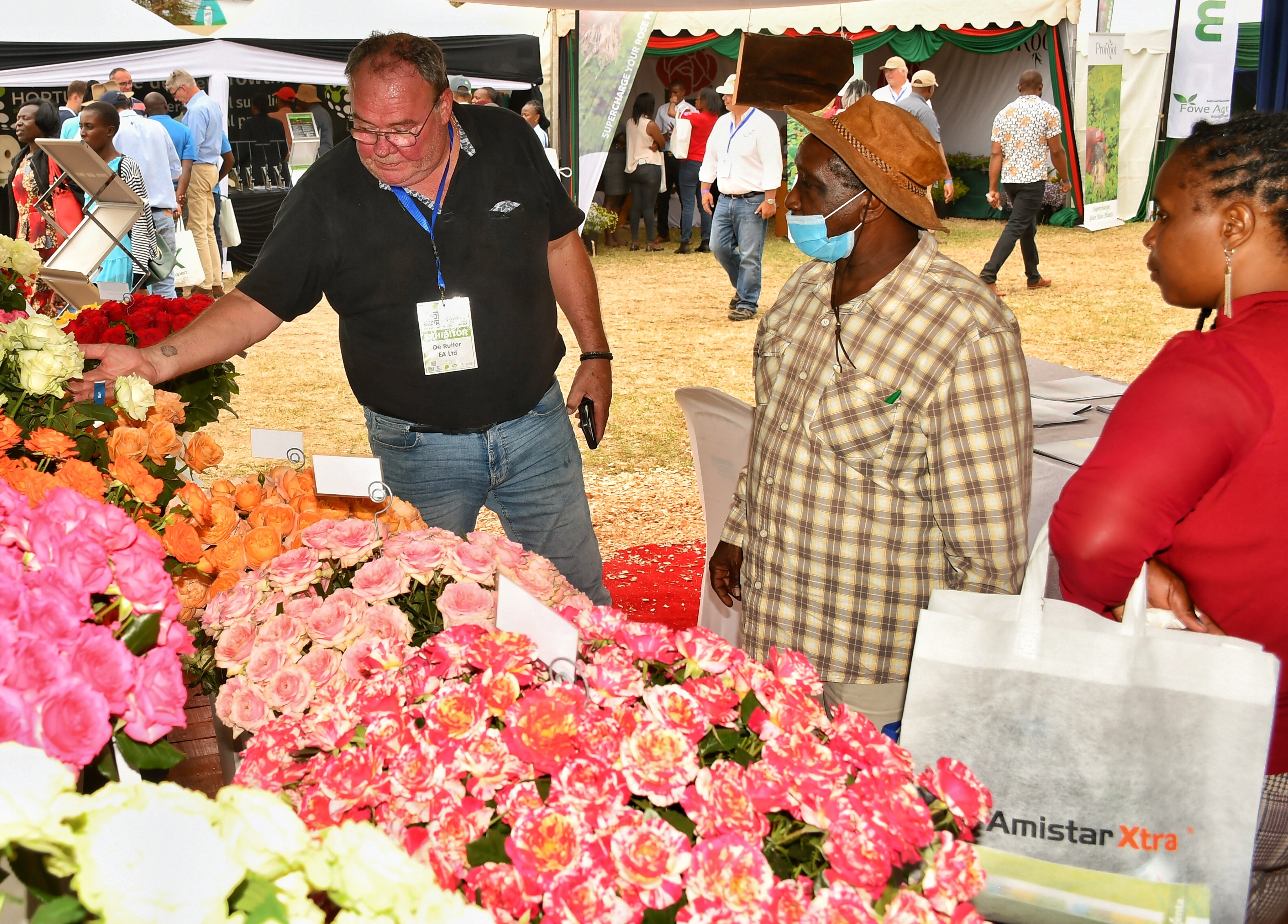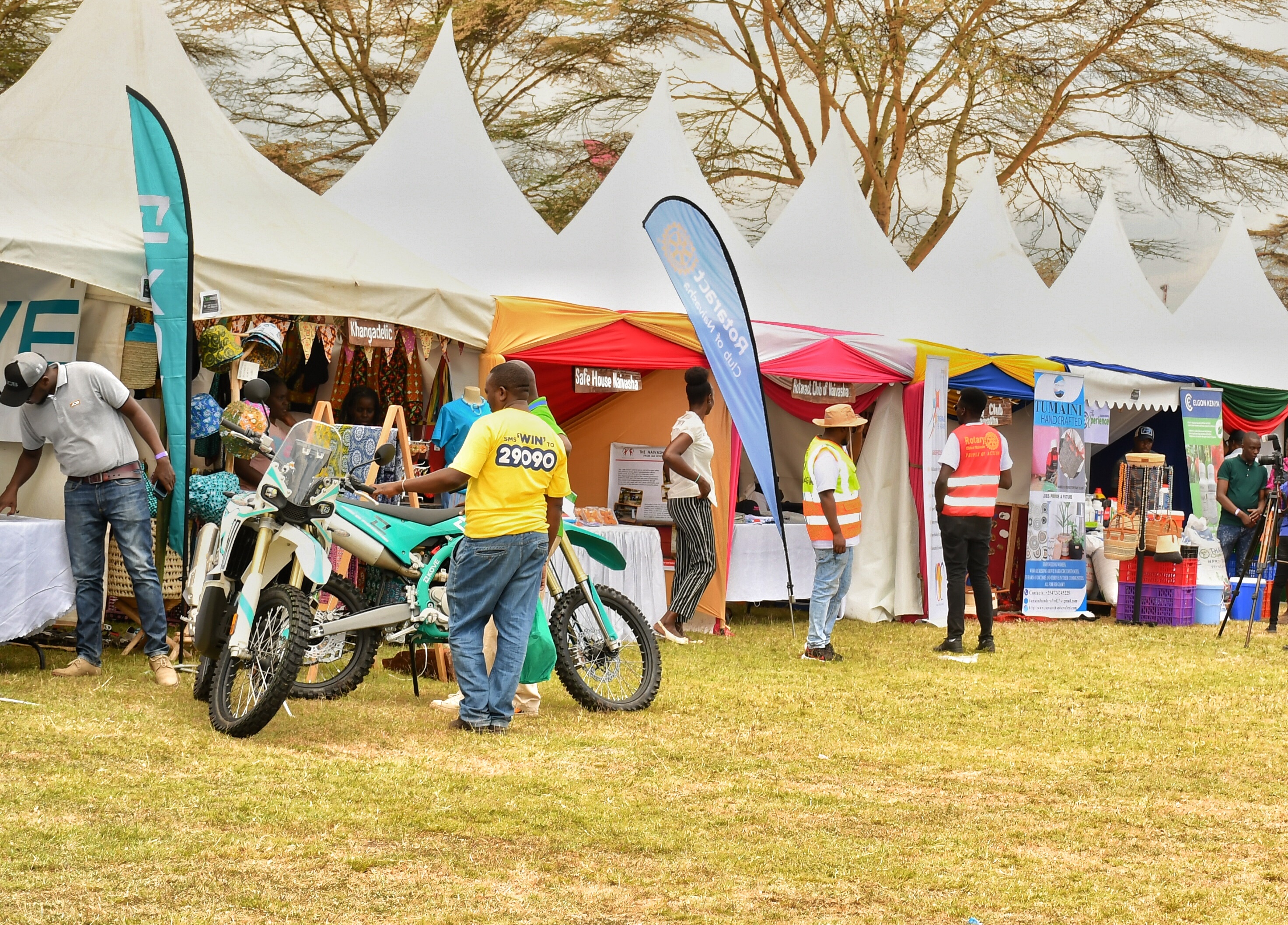Horticultural export sector players adjust to stricter EU rules amid rising climate concerns
Mabel Keya – Shikuku-KNA
Horticultural export sector stakeholders have been advised to adhere to the new standards set for the European market to continue to export their products to the market.
The Chairman of the Naivasha Horticultural Fair Mr. Richard McGonnell said the restricted standards were recently set by the European Union to ensure environmental safety in the face of the rising climate change challenge.
McGonnell however reiterated that the local growers have started adhering to strict market demands especially in quality and chemical levels especially those destined for European markets.
Speaking in Naivasha during this year’s edition of the Naivasha Horticulture Trade Fair, McGonnell said recently some shipments were intercepted and returned to their source counties due to False Codling Moth diseases in the products.
He revealed that the ongoing global conflicts including Israel -Gaza war and the Russia -Ukraine have affected the local horticultural sector in a big way, leading to high cost of production and cost of products destined for European Markets.
"The ongoing global conflicts have hit the transport of horticultural produce by sea due to attacks along key routes especially along the Red Sea as rebel groups increase attacks, forcing exporters to use alternative routes, leading to high freight costs of products shipped abroad," McGonnell said.
The chairman noted that earlier reports had indicated that freight charges have increased by more than 50 per cent since the start of the war, while the shipping time almost tripled.
He was emphatic that the horticultural sector was committed to double sea freight shipments to European Union markets despite the challenges and wondered why the national carrier-Kenya Airways (KQ) did not have cargo freights to the destination to provide alternative transport and reap from the ongoing crises.
Farmers drawn from across the country tour a flower themed exhibition stand at the two day Naivasha Horticultural Fair
The chairman at the same time lamented that despite the recent drop in oil prices in the global markets, the sector is yet to get the much-needed relief leading to high cost of production.
McGonnell said despite the cost of oil falling from $98 per barrel to $74 per barrel, the local horticultural growers are yet to feel the impact of the global changes which has seen the cost of production remain high.
He hailed the government for providing subsidized fertilizer to farmers which he said had seen food production go up by about 40 per cent, and consumption also gone up, impacting on food security and nutrition.
He urged the government to set up soil testing centres in various parts of the country for small scale farmers to help the farmers determine the kind of fertilizers to use and which crop to grow for maximum yields.
He said the farmers have used Diammonium Phosphate (DAP) fertilizer for a long time which has in turn affected the soils.
The Government early this year announced that it would provide seven million bags of subsidized fertilizer to
The last two years have seen the government provide fertilizer subsidies to cushion farmers against the high cost of the commodity.
The subsidy programme was followed by a farmer registration exercise, and the deployment of an accurate and transparent e-voucher system, for managing distribution.
The Elgon Kenya Company director Dr. Vimal Kantaria on his part said his company will continue to provide certified seeds and eco-friendly farm inputs and chemicals to the horticulture sector in line with the changing needs in the market and emerging issues of climate change.


